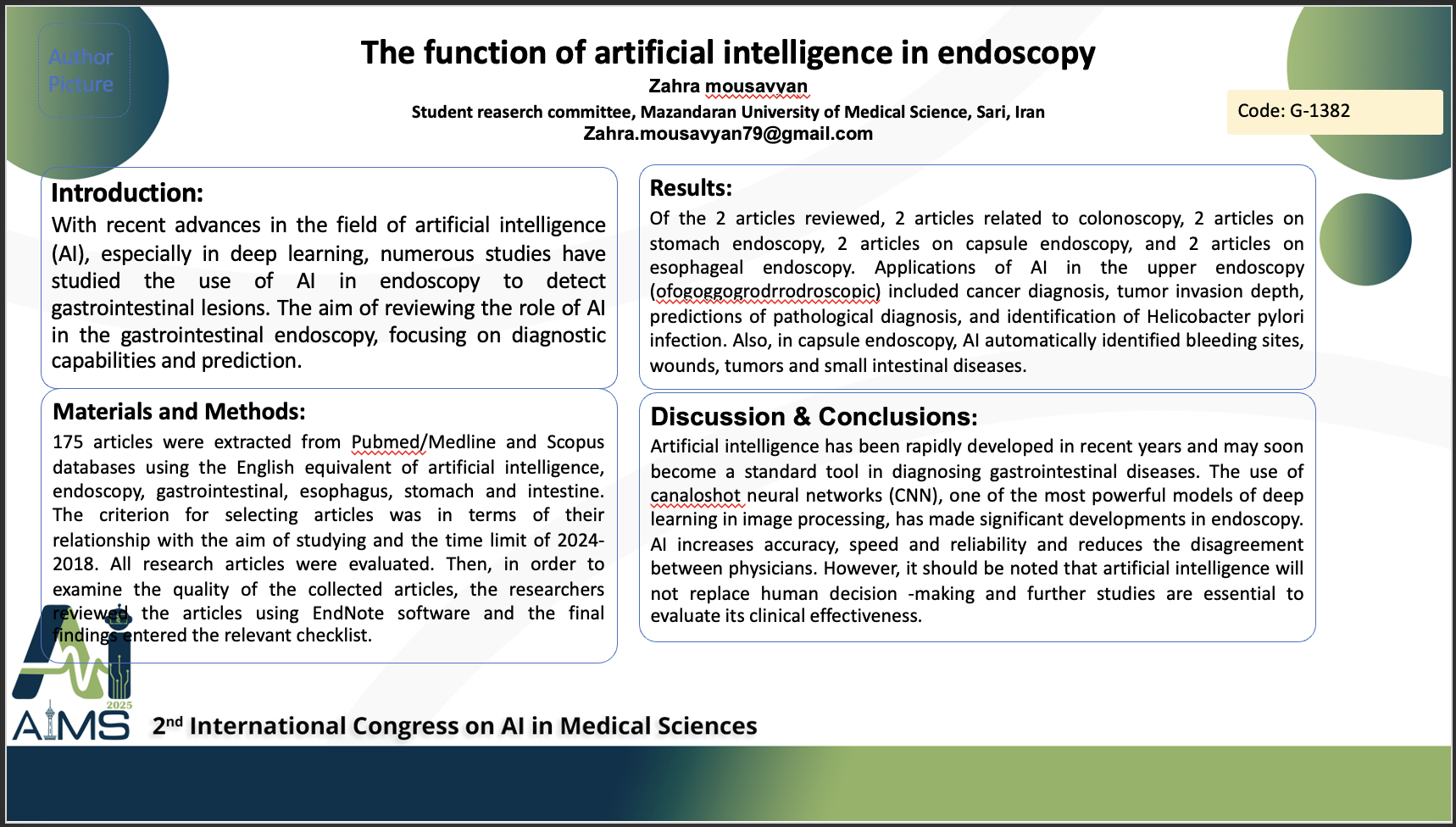Application of Artificial Intelligence in Endoscopy
Code: G-1382
Authors: Zahra Mousavyan * ℗
Schedule: Not Scheduled!
Tag: Clinical Decision Support System
Download: Download Poster
Abstract:
Abstract
Background and Aims: Artificial intelligence (AI), particularly deep learning, has revolutionized the landscape of diagnostic medicine. In recent years, its applications in gastrointestinal (GI) endoscopy have shown promising results in improving the detection, classification, and prediction of GI lesions. This review aimed to evaluate the current state and diagnostic potential of AI-based systems in GI endoscopy, including upper GI endoscopy, colonoscopy, and capsule endoscopy. Method: A narrative review was conducted in October 2024. Relevant literature was searched in PubMed/MEDLINE and Scopus databases using keyword combinations such as “artificial intelligence,” “endoscopy,” “gastrointestinal tract,” “esophagus,” “stomach,” and “intestines.” A total of 175 English-language original research articles published between 2018 and 2024 were identified. Only studies that implemented AI models within GI endoscopic procedures were included. Two independent reviewers assessed all retrieved articles using EndNote software and evaluated titles, abstracts, methodologies, and outcomes. Final data were documented using a standardized review checklist. Results: Among the 175 selected articles, 75 focused on colonoscopy, 37 on gastric endoscopy, 38 on esophageal endoscopy, and 25 on capsule endoscopy. AI applications in upper GI endoscopy involved detection of early-stage cancers, prediction of histopathologic diagnosis, assessment of tumor invasion depth, and identification of Helicobacter pylori infection. In capsule endoscopy, AI models were capable of detecting gastrointestinal bleeding, ulcers, tumors, and small intestinal diseases with high accuracy. Studies consistently reported improved diagnostic performance and reduced interpretation time. Conclusion: AI is rapidly transforming GI endoscopy by enhancing diagnostic accuracy, reducing observer variability, and optimizing workflow efficiency. Despite these advantages, AI should complement—not replace—clinical judgment. Further large-scale clinical trials are essential to assess real-world effectiveness and ensure responsible integration into endoscopic practice.
Keywords
Endoscopy, Gastrointestinal Tract, Deep Learning, Colonoscopy
